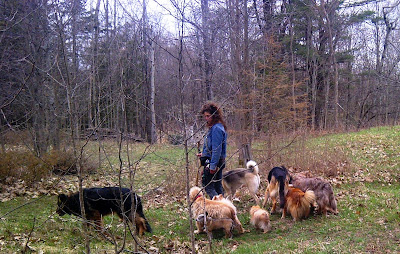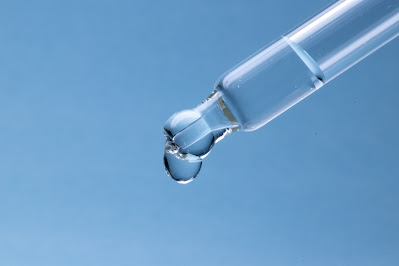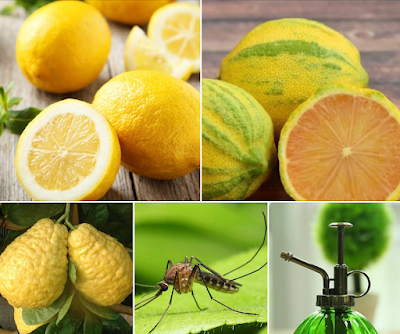Make Sure You Have Arnica In Your Dog and Cat's First Aid Kit, Arnica Can Provide Immediate Help for Muscle, Joint Injury and More
In this article:
- About Arnica
- Medicinal Properties of Arnica
- Arnica Can be Used In Multiple Ways
- Health Benefits of Arnica for Dogs and Cats
- Arnica Can Help Treat
- Topical Uses for Arnica
- Ingested Use, Homeopathic Remedy
- Dosing Instructions
- Instructions for Topical Use
- Tincture
- Cream or Gel
- Cautions
- Side Effects
1.0 About Arnica
Also known by the name: Carduus marianus, Silybum mariamum, Silybum,
Silybin, Silymarin, Silymarine, St. Mary’s Thistle, Marianus, Marianum, Our
Lady’s Thistle, etc.
Arnica is a
member of the daisy family. Arnica is a perennial alpine herbal plant with
orange-yellow daisy like flowers. At one time the wild Arnica Montana plant
grew in abundance in regions of Europe and America. A hardy meadow and mountain
plant it was known to grow at elevations up to 8,500 feet. Today, the wild
arnica plant is considerably scarcer and is a protected plant in many parts of
Europe.
Arnica was
first used in Europe in the 16th century as a medicinal plant. The
flowers heads alone are used for medicinal purposes -as an ingested and topical
treatment. The whole plant including the roots are also used for medicinal
ingested and topical treatments.
1.1 Medicinal Properties of Arnica Montana
Arnica has multiple naturally occurring constituents invaluable for treating pain, swelling, and inflammation. These natural components include:
- Antidiabetic
- Immunostimulant
- Lypolytic
- Prebiotic
including:
- Betaine
- Caroteins (rich in viatmin A)
- Coumarins (increase blood flow to help heal tissues)
- Gallic Acid (canti-bacterial, anti-fungal)
- Lutein
- Pectolin
- Phytoesterol (help lower bad cholesterol)
- Rutin
- Quercetin
including:
- Linoleic acid
- Palmetic acid
- Phenolic acid
Sesquiterpene Lactones
- Reduce inflammation by promoting the dispersion of fluids that build-up in bruised, injured tissue
- This increased circulation and drainage helps to speed healing by improving the flow of blood, lymph and platelets in and out of the affected area;
- Helps to clean-up inflammatory waste and lactic acid – thus reducing swelling and moderating pain after injury, muscle strain and surgery
Mucilage
Multiple volatile oils
including:
- Thymol
1.2 Arnica Montana Can Be Used In Multiple Ways
- Ingested Use
- Homeopathic remedy:
- Pilules
- Tablets
- Topical Use
- Cream
- Gel
- Diluted tincture
2.0 Health Benefits of Arnica for Dogs and Cats
A
partial list:
- Analgesic
- Antibacterial
- Anticoagulant
- Antinflammatory
- Antidiabetic
- Antifungal
- Antimicrobial
- Antiseptic
- Immunostimulant
- Lypolytic
- Sedative
2.1 Arnica Can Help Treat
- Aches
- Altitude sickness
- Brain injuries
- Bruises
- Concussions
- Emotional stress (including due to trauma, trauma before and after surgery)
- Muscle exhaustion from over-exertion
- Other injuries resulting from blunt force trauma
- Blows, falls, fractures (for pain management)
- Pain and swelling
- Sprains
- Spinal cord injuries
- Painful joints
- Muscle and joint injury
2.2 Topical Uses for Arnica
Cream, Gel or Tincture
Applied to
skin to reduce/treat:
- Aches
- Acne
- Arthritis
- Bruises – pain and swelling
- Insect bites
- Muscle exhaustion from over-exertion
- Other injuries
- Blows, falls, fractures (for pain management)
- Septic conditions
- Sprains
- Pain
- Cartilage, tendons
- Muscle
- Post labour
- For postnatal treatment of episiotomy stitches or tears – adding a few drops of arnica oil to warm distilled water to bath the area to speed healing.
3.0 Ingested Use, Homeopathic Remedy
Homeopathic Remedy Arnica Montana
3.1.1 Dosage
- Small dogs: 3 pellets (pillules)
- Medium dogs: 4 pellets
- Large dogs: 4 pellets
- X-Large dogs: 5 pellets
3.1.2 Dosing:
Administer a dose every two hours, up to three to four doses per day.
For severe cases of infection, tissue damage (bruise or closed wound), muscle, joint, ligament, tendon or other trauma dosage is:
For severe cases of infection, tissue damage (bruise or closed wound), muscle, joint, ligament, tendon or other trauma dosage is:
- Administer a dose every fifteen (15) minutes until symptoms are relieved.
- Dosage can be given once or twice a day for up to a week after the injury occurred.
- When possible dose at least 30 minutes away from food.
4.0 Instructions For Topical Use
For
arthritis, prevention of infection, tissue damage (bruise or closed wound),
trauma, sore muscles, and sprains.4.1 Tincture
Preparation
- Mix 1 tablespoon of arnica tincture (use alcohol-free or low alcohol) with 1 pint of purified water.
- Dip a cloth, cotton ball, sanitary pad, etc. into the arnica/water mixture
- Apply to the arthritic joint, bruised or wounded area making sure to moisten the skin (not just the fur).
- Wrap the area in gauze or cloth.
- Secure the wrap so that your dog or cat cannot remove the wrap and lick the wound or arnica.
- Don't allow your dog or cat to ingest the tincture.
4.2 Cream or Gel
For
arthritis, prevention of infection, tissue damage (bruise or closed wound),
trauma, sore muscles, and sprains. Preparation
- Apply to the arthritic joint, bruised or wounded area making sure to moisten the skin (not just the fur).
- Wrap the area in gauze or cloth.
- Secure the wrap so that your dog or cat cannot remove the wrap and lick the wound or arnica.
- Don't allow your dog or cat to ingest the arnica cream or gel.
5. Cautions
Arnica should
never used on open tissue injuries - damaged or broken skin, as arnica can
cause bleeding due to its sesquiterpene lactones that work to quickly stimulate
dilation and circulation of peripheral blood vessels – this can lead to
increased blood flow of an open tissue
or already bleeding wound.
Prolonged Use
Arnica is not
intended for prolonged use as it can, over-time cause adverse side effects.
Allergy
If you dog or
cat is allergic to arnica or related members of the daisy family Astercaeae/Compositae family (i.e. chamomile, marigolds, etc.), ragweed, do not
use arnica.
6. Side Effects
If arnica is
used for too long as a topical application it can cause:
- Abrasion if dog or cat licks the area of application
- Irritation of skin
- Lesions
- Redness
Holistic Diet, Nutrition, Wellness Services Tailored to Your Individual Dog and Cat
For information about my holistic diet, nutrition, wellness services visit my:
Maintain good health | Address acute and chronic health issues | Pre and post surgery support and recovery
My holistic wellness services are available worldwide via video consultation.
🌎 USA | Canada | UK | Europe | Australia | New Zealand | Asia | South and Central America | Africa | UAE
📱 FaceTime | Facebook | Skype | WhatsApp
Holistic Behavioral Services For Your Dog
For information about my holistic behavioral services visit my:
For dogs of all ages, sizes and breeds
My holistic behavioral services are available locally in-person and worldwide via video session.
🌎 USA | Canada | UK | Europe | Australia | New Zealand | Asia | South and Central America | Africa | UAE
📱 FaceTime | Facebook | Skype | WhatsApp
Affiliations to Companies
✓ None.
✓ I don't sell food or supplements.
✓ I'm not aligned with any companies.
✓ None.
✓ I don't sell food or supplements.
✓ I'm not aligned with any companies.
Article by Karen Rosenfeld










